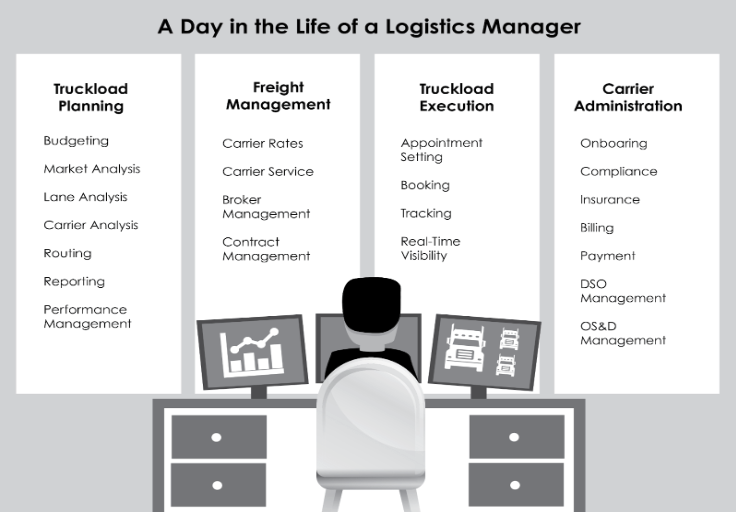


How Continuous Improvement Mindset Has Supercharged Freight Procurement
In today's rapidly changing business environment, organizations are looking for ways to stay competitive and maintain their edge. One crucial area that can significantly impact the bottom line is freight procurement. By embracing a continuous improvement mindset, shippers can supercharge their transportation efforts, reduce truckload cost, and strengthen customer service/ satisfaction. This blog will explore the reasons why continuous improvement is essential in the world of freight procurement and how it can lead to tangible benefits. Freight Procurement Has Remained Unchallenged and Therefore Unchanged Before we dive in, it is important for continuous improvement professionals to understand that the freight procurement process has remained unchallenged, and therefore unchanged due to a lack of technological advancements, and a lack of data transparency amongst third-party logistics partners [3PLs]. It is also important to understand the freight procurement process step-by-step. A typical freight procurement process involves selecting and contracting carriers to transport goods from one location to another at the best cost, service quality, and reliability. The process from start to finish is a long one. Massive amounts of time and energy are expelled at every step, especially when done manually. Steps include, but are not limited to: Defining shipment requirements. Finding carriers. Requesting pricing or tender. Analyzing quotes. Negotiating rates and terms. Awarding loads. Preparing shipping documentation. Monitoring and tracking shipments. Inspecting and verifying shipments. Evaluating carrier performance. How Continuous Improvement Benefits Freight Procurement When the freight procurement process is fully optimized, shippers receive many benefits. Streamlined Processes and Operational Efficiency: A continuous improvement mindset encourages shippers to continuously review and optimize critical supply chain processes to eliminate inefficiencies, redundancies, and bottlenecks....
Q2 Freight Market Update & How Innovative Shippers Have Prepared!
As the Q2 freight market update states, supply (# of carriers) will continue to surpass demand (# of loads). That said, there are plausible scenarios that could help balance supply and demand, tightening market conditions, sooner than anticipated. Possible Q2 freight market fluctuation The freight market is similar to the stock market. Supply (# of carriers) and demand (# of loads) determine truckload cost. The balance between supply and demand can change at any moment due to a variety of factors, including but not limited to the economy and seasonality. For Q2, higher fuel cost and inflation, increased regulation, and overcapacity will continue to push smaller, owner-operator carriers out of business. As trucks idle, supply will decrease because there will be fewer trucks available to move goods. At the same time, demand can increase due to increased seasonal production spikes in produce and building/construction. As noted above, when the balance between supply and demand changes, so should truckload pricing. How Shippers Can Proactively Prepare for Marketing Fluctuation When there’s excess supply (carriers) and rates fall, trucking companies exit the market. When rates rise, new trucking companies enter the market until carrier saturation occurs and rates fall back down again. It’s a vicious cycle. “The key for shippers is to find ways to dynamically stay on top of freight market twists and to pivot quickly with little notice. Remaining static is not sustainable because freight supply and demand always changes,” said Oleg Yanchyk, Sleek Technologies CIO. Forward-thinking shippers have replaced legacy freight procurement processes, such as RFPs, brokers, and spot quoting with AI-powered software so there are no delays when reacting...
